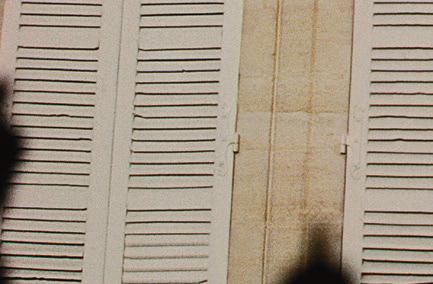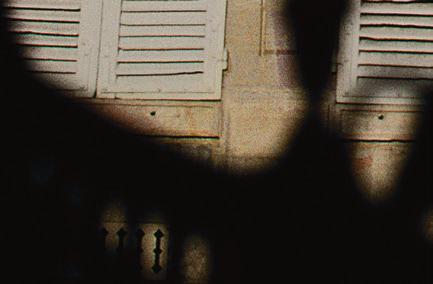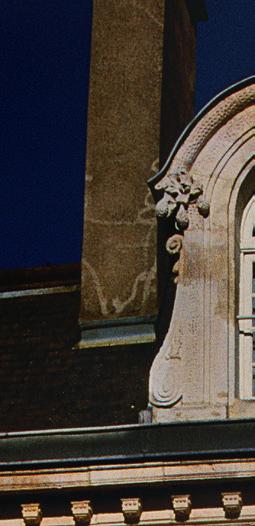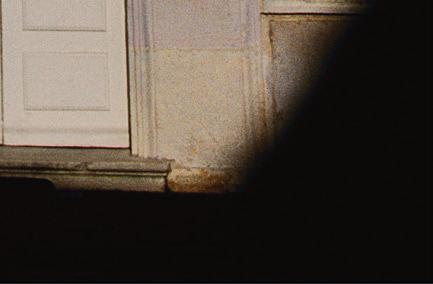



























































‘Extraordinary masterpieces of the twentieth century’ – John Banville
‘A brilliant writer’ – India Knight
‘Intense atmosphere and resonant detail . . . make Simenon’s fiction remarkably like life’ – Julian Barnes
‘A truly wonderful writer . . . marvellously readable – lucid, simple, absolutely in tune with the world he creates’ – Muriel Spark
‘Few writers have ever conveyed with such a sure touch, the bleakness of human life’ – A. N. Wilson
‘Compelling, remorseless, brilliant’ – John Gray
‘A writer of genius, one whose simplicity of language creates indelible images that the florid stylists of our own day can only dream of’ – Daily Mail
‘The mysteries of the human personality are revealed in all their disconcerting complexity’ – Anita Brookner
‘One of the greatest writers of our time’ – The Sunday Times
‘I love reading Simenon. He makes me think of Chekhov’ – William Faulkner
‘One of the great psychological novelists of this century’
– Independent
‘The greatest of all, the most genuine novelist we have had in literature’ – André Gide
‘Simenon ought to be spoken of in the same breath as Camus, Beckett and Kafka’ – Independent on Sunday
Georges Simenon was born on 12 February 1903 in Liège, Belgium, and died in 1989 in Lausanne, Switzerland, where he had lived for the latter part of his life. Between 1931 and 1972 he published seventy- five novels and twenty- eight short stories featuring Inspector Maigret. Simenon always resisted identifying himself with his famous literary character, but acknowledged that they shared an important characteristic:
My motto, to the extent that I have one, has been noted often enough, and I’ve always conformed to it. It’s the one I’ve given to old Maigret, who resembles me in certain points . . . ‘understand and judge not’.
Translated by WILLIAM HOBSON
UK | USA | Canada | Ireland | Australia
India | New Zealand | South Africa
Penguin Classics is part of the Penguin Random House group of companies whose addresses can be found at global.penguinrandomhouse.com.
Penguin Random House UK
One Embassy Gardens, 8 Viaduct Gardens, London SW 11 7 BW penguin.co.uk
First published in French as Un échec de Maigret by Presses de la Cité 1956
This translation fi rst published 2017
Published in Penguin Classics 2025 001
Copyright © Georges Simenon Limited, 1956
Translation copyright © William Hobson, 2017


GEORGES SIMENON and ® , all rights reserved
MAIGRET ® Georges Simenon Limited, all rights reserved

original design by Maria Picassó i Piquer
All rights reserved
The moral rights of the author and translator have been asserted
Penguin Random House values and supports copyright.
Copyright fuels creativity, encourages diverse voices, promotes freedom of expression and supports a vibrant culture. Thank you for purchasing an authorized edition of this book and for respecting intellectual property laws by not reproducing, scanning or distributing any part of it by any means without permission. You are supporting authors and enabling Penguin Random House to continue to publish books for everyone. No part of this book may be used or reproduced in any manner for the purpose of training artificial intelligence technologies or systems. In accordance with Article 4(3) of the DSM Directive 2019/790, Penguin Random House expressly reserves this work from the text and data mining exception.
Typeset by Jouve ( UK ), Milton Keynes
Printed and bound in Great Britain by Clays Ltd, Elcograf S.p.A.
The authorized representative in the EEA is Penguin Random House Ireland, Morrison Chambers, 32 Nassau Street, Dublin D 02 YH 68
A CIP catalogue record for this book is available from the British Library
ISBN : 978–0–241–30378–8
Penguin Random House is committed to a sustainable future for our business, our readers and our planet. This book is made from Forest Stewardship Council® certified paper.
1. The Old Woman of Kilburn Lane and the Butcher of Parc Monceau 1
2. The Wary Secretary and the Deliberately Obtuse Wife 21
3. The Manservant’s Past and the Tenant on the Third Floor 41
4. The Drunk Woman and the Photographer with the Muffled Tread 61
5. The Woman Who Likes the Fireside and the Girl Who Likes a Good Meal 81
6. The Man in the Box Room and the Borrowings from Petty Cash 102
7. A Simple Maths Problem and a Less Innocent Souvenir of the War 123
8. The Window, the Safe, the Lock and the Thief 144
9. The Search for the Missing Persons 156
Joseph, the office boy, made the faintest of noises, barely that of a scurrying mouse, as he scratched at the door. Inching it open so that it didn’t creak, he then slipped so silently into Maigret’s office that, with the halo of white, almost translucent hair around his otherwise bald head, he might have been pretending to be a ghost.
Maigret was bent over some files, pipe stem clamped between his teeth. He did not look up, and Joseph remained rooted to the spot.
Maigret had been on edge, and his colleagues had been tiptoeing in and out of his office for a week. And he wasn’t the only one, either in Paris or anywhere else in France; no one had ever known such a damp, cold, gloomy March.
At eleven in the morning the office still looked like the morning of a hanging. The lights were kept blazing past noon, and dusk started to fall at three. They couldn’t tell if it was raining any more, since they were actually living inside a rain cloud, with water everywhere, trails of it on the floors and people unable to say three words to anyone without blowing their noses.
The newspapers carried photographs of commuters going home by boat on streets that might as well have been rivers.
When he got to work in the morning, Maigret would ask:
‘Is Janvier here?’
‘Sick.’
‘Lucas?’
‘His wife rang to say . . .’
His inspectors came down with the flu one by one, sometimes in whole batches, so that his team was never more than at a third of its full strength.
Madame Maigret, meanwhile, hadn’t caught the flu. She had a toothache. Every night, despite the dentist’s best efforts, it came on around two or three in the morning, and she wouldn’t close her eyes again until it was almost dawn. She was brave, never complained, never let out so much as a groan.
But that only made the whole thing worse. Suddenly, in mid-sleep, Maigret would become aware that she was awake. He would feel her holding in her moans so fiercely that she hardly dared breathe. He wouldn’t say anything for a while. He would just lie there, spying on her suffering, as it were, until finally he wouldn’t be able to help muttering:
‘Why don’t you take a pill?’
‘Aren’t you asleep?’
‘No. Take a pill.’
‘You know they don’t do anything any more.’
‘Take one anyway.’
He would get out of bed, barefoot, go and fetch the packet, and then give it to her with a glass of water without being able to hide how tired and increasingly irritated he was.
‘I’m sorry,’ she’d sigh.
‘It’s not your fault.’
‘I can always go and sleep in the maid’s room.’
They had one on the sixth floor, which they almost never used.
‘Let me go and sleep up there.’
‘No.’
‘You’ll be tired tomorrow and you’ve got so much to do!’
He had more worries, strictly speaking, than actual work, since this was the moment the old Englishwoman, Mrs Muriel Britt, had chosen to go missing, and it was all over the newspapers.
Women disappear every day, and most of the time it quietly plays itself out. They’re found or not, as the case may be, and the newspapers give it three lines at the most.
Muriel Britt’s disappearance, however, had caused a storm of publicity, because she had come to Paris with fifty-two other people, an entire train-carriage load, one of those herds of tourists that travel companies round up in England, the United States, Canada or elsewhere and ferry round Paris for a pittance.
It was the evening the group had done ‘Paris by night’. A coach had shunted the assortment of mainly middleaged men and women around Les Halles, Pigalle, Rue de Lappe and the Champs-Élysées, having first equipped them with tickets entitling them to a drink at every establishment they visited.
By the end, everyone was very merry, a sea of ruddy cheeks and shining eyes. A little gentleman with a waxed moustache, a bookkeeper in the City, went missing before
the last stop but he was found the following afternoon in his bed, to which he had discreetly retired.
Mrs Britt was a different matter. The English newspapers stressed that she had no reason to disappear. She was fifty-eight years old. Thin and wiry, with the wornout face and body of a woman who had worked all her life, she ran a boarding house on Kilburn Lane, somewhere in the west of London.
Maigret had no idea what Kilburn Lane was like. Going by the photographs in the newspapers, he pictured a drab establishment inhabited by typists and clerks who would gather at a round table at meal times.
Mrs Britt was a widow. She had a son in South Africa and a married daughter somewhere on the Suez Canal. The papers made a point of stressing that this was the first real holiday the poor woman had treated herself to in her life.
A trip to Paris, where else! In a group. Fixed price, all in. She had been staying with her fellow tourists in a hotel by Gare Saint-Lazare which specialized in these sorts of ‘tours’.
She had left the coach at the same time as the rest of the party and gone back to her room. Three witnesses had heard her close the door. The next day she wasn’t there, and no trace of her had been found since.
An embarrassed-looking sergeant had arrived from the Yard, made himself known to Maigret, then discreetly set about making his own inquiries.
Meanwhile, less discreetly, the English papers had set about trumpeting the inefficiency of the French police.
But there were certain details that Maigret was loath
to reveal to the press. The fact, for instance, that bottles of alcohol had been found stashed all over Mrs Britt’s room: under the mattress, beneath her underwear in a drawer, even on top of the mirrored wardrobe. Or that the grocer who had sold her them had come to Quai des Orfèvres almost the moment her photograph had appeared in an evening paper.
‘Did you think there was anything odd about her?’
‘Hmm . . . She was tipsy, the wine had obviously been flowing . . . If it was in fact wine. Going on what she bought from me, gin was her tipple . . .’
Had Mrs Britt made a habit of indulging in similarly copious, secret libations in the boarding house on Kilburn Lane? The English newspapers scrupulously avoided saying anything on the subject.
The night porter at the hotel had also given a statement.
‘I saw her come creeping back downstairs. She was four sheets to the wind and made a pass at me.’
‘Did she go out?’
‘Yes.’
‘Which way?’
‘I don’t know.’
A policeman had seen her hesitating outside a bar on Rue d’Amsterdam.
Then that was it. No bodies had been fished out of the Seine. No women had been found chopped up into pieces on a patch of waste ground. Superintendent Pike of the Yard, whom Maigret knew well, rang every morning from London.
‘Sorry, Maigret. Still no leads?’
That, the rain, his damp clothes, the umbrellas dripping in every corner and, to cap it all, Madame Maigret’s teeth made for a pretty unpleasant state of affairs, and Maigret’s team could feel he was just waiting for a chance to explode.
‘What is it, Joseph?’
‘The chief would like a word with you, detective chief inspector.’
‘I’ll be right there.’
It wasn’t time for the daily briefing. When the head of the Police Judiciaire called Maigret into his office during the day like this, it generally meant something significant was up.
He nonetheless finished working on a file, filled a fresh pipe, then headed for the chief’s door.
‘Still nothing, Maigret?’
He merely shrugged.
‘I’ve just got a letter from the minister by messenger.’
When anyone just said the minister, they meant the minister of the interior, to whom the Police Judiciaire was accountable.
‘I’m listening.’
‘Someone’s coming here at eleven thirty . . .’
It was 11.15.
‘A man called Fumal, who is apparently a big shot in his line. At the last elections, he poured God knows how many millions into the party’s coffers . . .’
‘What has his daughter done?’
‘He hasn’t got a daughter.’
‘His son then.’
‘He hasn’t got a son either. The minister doesn’t say what it’s about. Apparently this gentleman just wants to see you in person and you’ve got to pull out all the stops to keep him happy.’
Maigret mouthed something, a word clearly beginning with an ‘s’.
‘I’m sorry, old friend. I realize too that it’s bound to be a chore of some sort or other. But give it your all. We’ve had enough problems recently.’
Maigret stopped at Joseph’s desk in the waiting room.
‘When this Fumal character gets here, send him straight in.’
‘This who?’
‘Fumal! That’s his name.’
A name, incidentally, that reminded him of something. Strangely he would have sworn that it was something unpleasant, but he had enough troubles as it was without dredging his memories for more.
‘Is Aillevard here?’ he asked, standing in the doorway of the inspectors’ office.
‘He didn’t come in this morning.’
‘Is he sick?’
‘He hasn’t rung.’
Janvier, meanwhile, had returned to work, his nose still red, his complexion as grey as rubber.
‘How are the kids?’
‘Down with flu, naturally.’
Five minutes later there was another scratch at the door, and Joseph announced, as if he was using a slightly offcolour phrase:
‘Monsieur Fumal.’
Without looking at his visitor, Maigret muttered: ‘Have a seat.’
When he raised his head, he saw a huge, doughy figure who could barely squeeze into the chair. Fumal was looking at him with a mischievous glint, as if he expected Maigret to react in a particular way.
‘What’s this concerning? I was told you wanted to talk to me personally.’
There were only a few drops of rain on the overcoat of his visitor, who must have come by car.
‘Don’t you recognize me?’
‘No.’
‘Think.’
‘I don’t have time.’
‘Ferdinand.’
‘Ferdinand what?’
‘Fat Ferdinand . . . Boom-Boom!’
Suddenly Maigret remembered. He’d been right in thinking just now that it had unpleasant associations. It was a very old memory, from the time he was at his village school in Saint-Fiacre in the Allier and Mademoiselle Chaigné was the teacher.
In those days Maigret’s father was the estate manager at Saint-Fiacre chateau, while Ferdinand was the son of the butcher at Quatre-Vents, a hamlet a kilometre away.
There’s always a boy like him in every class: taller and fatter than everyone else, almost morbidly fat.
‘Have you got it now?’
‘I’ve got it.’
‘What’s it like seeing me again? I knew you’d become a cop because I’ve seen your photo in the papers. Hey, we used to be on first-name terms.’
‘Not any more,’ Maigret said flatly as he emptied his pipe.
‘Up to you. Have you read the minister’s letter?’ ‘No.’
‘Hasn’t anyone told you anything?’
‘They have.’
‘We’ve done pretty well, us two, all things considered. We’ve followed different paths, of course. My father wasn’t an estate manager, was he, he was just a simple village butcher. I was thrown out of Moulins lycée after second year . . .’
His attitude was palpably aggressive, which can’t have been solely to do with Maigret. He was the sort of man who would be hard and antagonistic towards everyone, life itself, the heavens above.
‘Which didn’t stop Oscar telling me today . . .’ Oscar being the minister of the interior.
‘. . . “Go and see Maigret. He’s the man for you, he’ll put himself entirely at your disposal . . . At any rate, I’ll see he does . . .” ’
Maigret didn’t react, just carried on staring his visitor stolidly in the face.
‘I remember your father very well,’ continued Fumal. ‘He had a reddish blond moustache, didn’t he? He was thin . . . narrow-chested . . . They must have cooked up some good schemes together, him and my dad . . .’
Maigret had trouble remaining impassive this time;
Fumal had hit a raw nerve, one of the most painful memories of his childhood.
Like many country butchers, Fumal’s father, who was called Louis, was also to all intents and purposes a cattle dealer. He had gone so far as to rent a few low-lying meadows, where he put the cows to pasture, and gradually expanded across the whole region.
His wife, Ferdinand’s mother, was known as ‘la belle Fernande’. People said she never wore underwear, and even cynically explained, ‘You might miss your chance while you’re fiddling about getting them off.’
Are there patches of shadow like this in everyone’s childhood memories?
As estate manager, Evariste Maigret was responsible for selling the chateau’s cattle. For a long time he had refused to do business with Louis Fumal. But one day he changed his mind, and Fumal had come to the office with his worn wallet stuffed as full of notes as ever.
Maigret must have been seven or eight at the time and he hadn’t gone to school, not because of a dose of flu that time, like Janvier’s children, but because he had mumps. His mother was still alive. It was very hot in the kitchen and all grey outside, with clear water running down the windowpanes.
His father had rushed in without a hat, which was unusual for him, with drops of rain on his moustache, very agitated.
‘That crook Fumal . . .’ he had muttered.
‘What’s he done?’
‘I didn’t see straight away . . . When he left I put the